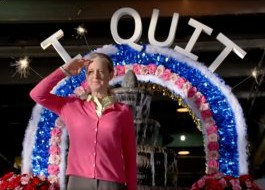 Rachael O'Meara, pictured, realized she wasn't a failure.Larry Dyer
Rachael O'Meara, pictured, realized she wasn't a failure.Larry Dyer
Rachel O'Meara had met multiple times with her direct boss to discuss her poor performance.
An account manager leading a customer support team at Google, O'Meara was trying her best, but still struggling to meet expectations.
Her boss, Margaret, would tell her: "You need to be a more effective communicator," and "You need to stand behind your ideas with conviction."
Eventually, Margaret told O'Meara that things "just weren't working out."
As O'Meara recounts in her new book, "Pause: Harnessing the Life-Changing Power of Giving Yourself a Break," she felt generally like a "miserable failure" — until she met with Margaret's boss, Bill.
Bill told her: "Rachael, your skill set isn't a match for this role. I know Margaret has the best intentions for you, and you need to find a job that works best for what you're good at."
Yes, these were harsh words — but for O'Meara, they signaled that she wasn't necessarily the failure she'd made herself out to be.
O'Meara writes:
"If I had looked at this conversation under a magnifying lens, I would see my situation wasn't about me 'underperforming,' which was what I'd heard Margaret tell me time and time again.
"I considered that maybe my performance review wasn't really about my performance, but about my alignment.
"What Margaret was saying was that 'my strengths weren't a fit,' without telling me as straight-up as [Bill] did."
Ultimately, O'Meara took advantage of Google's sabbatical program, taking three months off work to figure out what she really wanted to do in her personal and professional life.
Spoiler alert: She realized she didn't have to leave Google. Today, O'Meara is an account manager for the DoubleClick Ad Exchange at Google; she's also a transformational leadership coach.
That shift was partly a result of O'Meara's efforts to pinpoint her strengths. Based on informal conversations with her friends and the StrengthsFinder 2.0 assessment, O'Meara realized she excelled at building interpersonal relationships, among other things.
So she found a job at Google that allowed her to channel that strength.
In "Pause," O'Meara writes that it takes courage to find or create work that aligns with your strengths and values. Moreover, it takes courage — and effort — to figure out what exactly your strengths and values are.
You don't necessarily have to take three months off work — after all, many companies won't allow that. One exercise O'Meara recommends involves responding to the following prompts. Your answers will give you a better picture of what kind of role you'd thrive in.
What I most enjoy about my company or role: What I want to start doing more of: What I want to continue doing: What I don't want to do or minimize in my future role:O'Meara writes: "When we are aligned, it's because we are motivated by our purpose. If we don't know what that is, it can be difficult to know what path or situation works best."
Get the latest Google stock price here.




